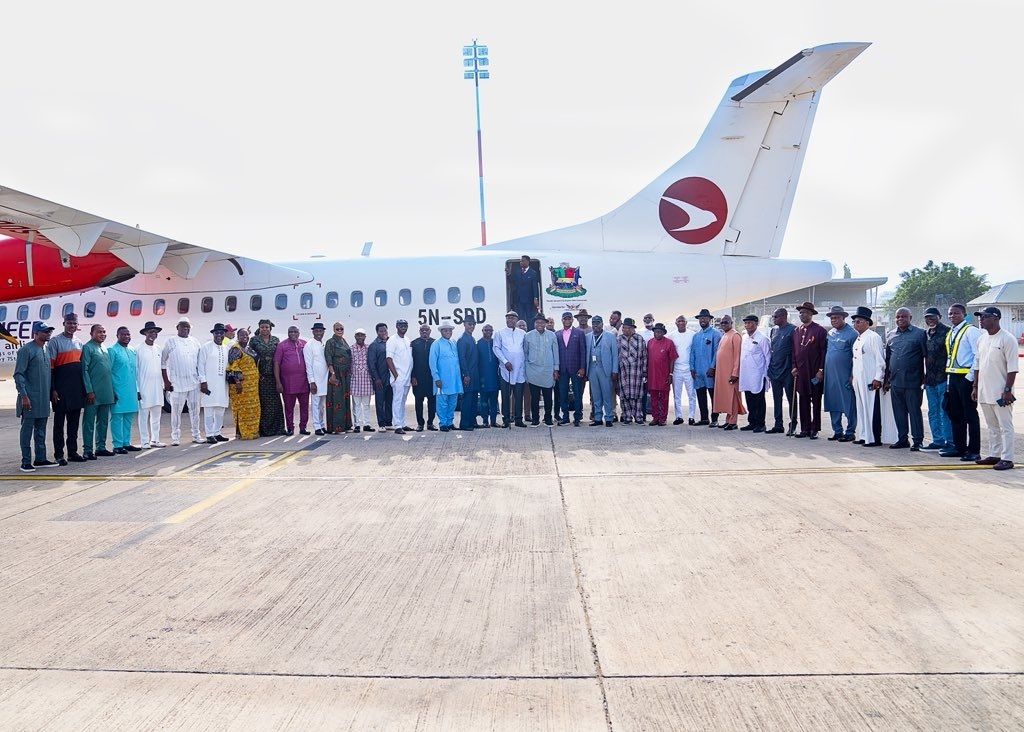
Yinka Olatunbosun
The 15th edition of the LagosPhoto Festival has opened across multiple venues in Lagos and Ibadan, bringing together about 50 artists and collectives under the thought-provoking theme “Incarceration.”
Organised by the African Artists’ Foundation (AAF), the 2025 edition opened on October 25 and runs till November 29, marking a new era for Nigeria’s foremost international photography festival. Now staged biennially, LagosPhoto has deepened its curatorial scope while expanding regional collaborations and global participation.
This year’s festival unfolds across the African Artists’ Foundation, Nahous Gallery, Didi Museum, Freedom Park, and Alliance Française in Lagos, as well as the New Culture Studio in Ibadan.
Curated by Courage Dzidula Kpodo, Robin Riskin, Maria Pia Bernadoni, and Kadara Enyeasi, under the direction of Azu Nwagbogu, founder and director of AAF, the exhibition probes how photography and lens-based practices can interrogate systems of control while reclaiming visibility and narratives of freedom.
“The festival calls on audiences to examine the many forms of incarceration—imposed by the self or by others—that continue to threaten subjugated peoples in their efforts to shape their futures. It is an invitation to explore pathways toward freedom, and how images can enact and reimagine liberation,” the curatorial statement reads.
True to its tradition of expanding the definition of photography, LagosPhoto 2025 embraces a range of media including film, performance, sound, installation, textiles, and archival material.
Lead curator Courage Dzidula Kpodo noted that this year’s edition introduced a more democratic process through an open call for submissions, enabling artists from around the world to participate.
“This year was quite different,” Kpodo explained. “We put out an open call, so even someone in a remote corner of Asia could send in an application. Through this, we discovered remarkable works we might never have found otherwise.”
One such discovery is Johis Alarcon, an artist of Andean and African descent from Ecuador, whose work investigates the overlooked history of African enslaved descendants in South America.
Across the festival’s venues, the exhibitions are organised into thematic clusters addressing identity, gender, violence, and archival memory.
“At AAF, we explore how incarceration can even be self-inflicted—how individuals, shaped by past traumas, may internalise confinement,” Kpodo said. “At Didi Museum, the works deal more with gender, violence, and archival research, while the Ibadan section focuses on architecture and the afterlife.”
Curator Maria Pia Bernadoni reflected on the festival’s intellectual evolution, linking Incarceration to ongoing conversations about mobility, borders, and human limitation.
“Every edition grows from reflections on what’s happening around us,” she said. “In 2019, we explored Passports and the limitations imposed by nationality. Incarceration continues that thought—how borders, prisons, technology, and even social media shape our freedoms and our minds.”
The choice of venues amplifies the dialogue between history and space. The reopening of the AAF space after two years—alongside exhibitions at Nahous Gallery (within the historic Federal Palace complex where Nigeria’s independence was declared), Didi Museum (the country’s first private museum), and Freedom Park (a former colonial prison)—offers a layered backdrop for artistic engagement.
In Ibadan, the New Culture Studio, designed by Demas Nwoko in 1970, hosts installations that engage with architecture and the metaphysics of confinement—extending the festival’s conversation beyond photography into the terrain of spatial and spiritual inquiry.



